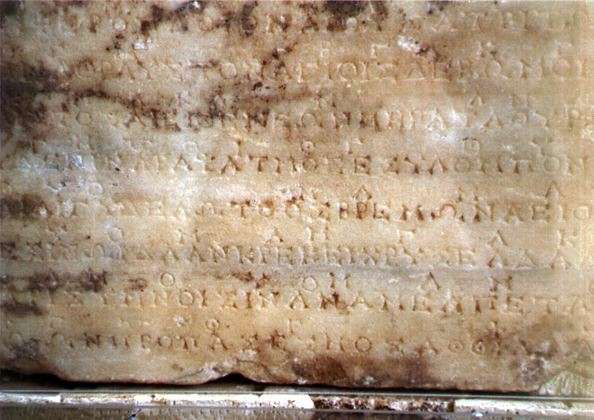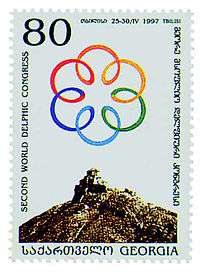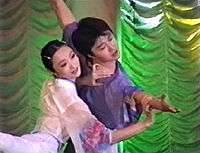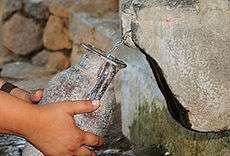International Delphic Council
|
|

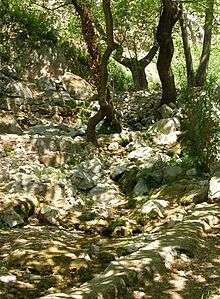
The International Delphic Council (IDC) is a charitable, non-governmental organization (NGO), headquartered in Berlin, Germany. It claims to be the highest authority for all matters regarding the Delphic Games of the modern era,[1] although there is a similar but separate organization, International Delphic Committee, headquartered in Russia.
Historical reference
The Delphic Games of the modern era were inspired by the ancient Greece traditional Pythian Games of Delphi as a symbol for peace. The original Games were between artists and ethnic cultural groups. They took place each year preceding to the Olympic Games. The historic Pythian Games in Delphi can be traced as far back as 2,600 years ago. The spiritual leaders formed the Pan-Hellenic to perform wonders, theatre, music, and poetry to praise the god Apollo of wonderful light, the symbol of the Oracle of Delphi. The Pythian Games were one of the four Panhellenic Games, a forerunner of the modern Olympic Games, held every four years at the sanctuary of Apollo at Delphi.[2]
After the revival of the Olympic Games, art competitions were held from 1912 to 1948 at the initiative of Pierre de Coubertin. Competitions in various forms of art were thematically related exclusively to the sport.
Also in the first half of the 20th century, there was a move to revive the Pythian Games at Delphi, at the initiative by the Greek poet Angelos Sikelianos. In 1927, the Delphic Festival was held for the first time, but the revival was then abandoned due to the cost of organizing it. Delphic Festivals are held in the summer in Delphi, focused largely on tourists.[3]
Founding
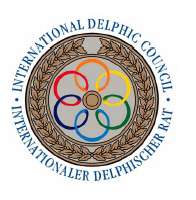
The International Delphic Council (IDC) was founded in 1994. The founder J. Christian B. Kirsch invited people from eighteen nations to Berlin to the founding congress in Schönhausen Palace, aiming to revive the Delphic Games and to provide a forum for worldwide arts and culture. Representative were from Argentina, Austria, China, Cyprus, Ecuador, France, Germany, Greece, Kazakhstan, Libya, Liechtenstein, Lithuania, Mexico, Nigeria, Philippines, Poland, Russia, Slovakia, Switzerland, United States.[4][5][6][7]
The symbols of the International Delphic Movement imitate the symbols of the Olympics. The flag with the Delphic rings that are connected in a circle like a flower, was designed by Christian Kirsch [4] and symbolizes the connection of the six Delphic art categories.
The first president of the IDC was Ebun A. Oyagbola of Nigeria, the general secretary and founder is J. Christian B. Kirsch of Germany, and the current president is Divina Bautista of Philippines, in office since 2009.[8][9][10][11]
The IDC executive board is elected for two years by the general assembly of the IDC. On the ninth session of the IDC in Jeju, Korea, the current executive board was elected.[12]
The International Delphic Council has "Delphic Ambassadors", including celebrities such as Nelson Mandela (South Africa) and Lothar de Maizière (Germany).
|
| |
|
|
Founding of the national Delphic organizations
The International Delphic Council (IDC) is the co-ordinator and chief executive body of the worldwide Delphic Network. The member countries will establish national Delphic organisations (council, committee, association, union, etc.) which will coordinate with the IDC to promote and organize the Delphic Games. They receive from the IDC, the confirmation of admission after the official registration in the country.[13][14]
After 1994, national chapters in Belarus, Germany, Georgia, Greece, China, Japan, Nigeria, Philippines, Russia and the United State were particularly active.[15] The first regional Youth Delphic Games were held in Georgia, Albania and Russia.[16]
The National Delphic organizations design their own logo, which includes some of the IDC symbols.[17] In preparation of the national qualifications specially designed logos of these national games, which are endorsed by IDC.[18][19]
NDC Korea won the bid to host the third Delphic Games 2009 in Jeju. The decision on the venue of the next Delphic Games will be taken by vote of the members of the IDC Board at an extraordinary meeting.
The national Delphic organization of the host country together with IDC prepare for holding Delphic Games. This initiative has received greetings from Yehudi Menuhin [20] and Elena Obraztsova,[21] among others.
The National Delphic organizations of host countries produce after meeting with the IDC thematic posters, brochures, stamps and other products that are dedicated to the Delphic Games and the IDC Congress.
IDC and NDC Russia
The National Delphic Council of Russia (NDC Russia) held its founding in December 1998, at conference in Kursk, where secretary general of the IDC Christian Kirsch participated. 19 March 1999 was NDC Russia at the Ministry of Justice registered, and soon afterwards officially recorded in the International Delphic Council recorded, according to IDC-status.
26 June 2000, the head of NDC Russia V. Ponyavin turned to the secretary general of the IDC C. Kirsch, with the request, the first Delphic Games for adults in Moscow from 1 to 10 December 2000 let to hold.[22] This request was granted.
Later, however, the Russian NDC split off from the International Delphic Council. Today, various Russian websites and Pressa claim, the Delphic idea was originated by the Russians in 2000.[23] Despite the withdrawal of the Russian National Delphic Council from the International Delphic Council, the Russian delegations took part in the International Delphic Games in 2007 and 2009.[24][25] This confirm also the illustrated Delphic calendars. [26][27]
Chronology of the International Delphic Games
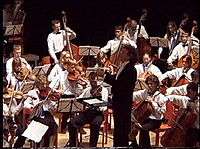
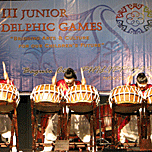
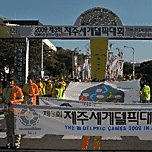
The IDC, organize adult and junior Delphic Games every four years, two years apart from each other in different countries – the countries having interest to host the games are urged to bid for and it is being decided by the eleven IDC board members.
The Delphic Games is in six Delphic Art Categories, and it is under the patronage of international institutions - the Council of Europe, UNESCO and ASEAN states.[28][29][30][31][32][33][34]
Since 1997 seven international Delphic Games has been organized - three for adults and four for juniors.
| Year | Event | Location | Theme |
|---|---|---|---|
| 1997 | the first Junior Delphic Games | Tbilisi / Georgia | A Day of Dreams |
| 2000 | the first Delphic Games | Moscow / Russia | The New Millennium |
| 2003 | the second Junior Delphic Games | Düsseldorf / Germany | Creativity & Peace |
| 2005 | the second Delphic Games | Kuching / Malaysia | Revitalising Endangered Traditions |
| 2007 | the third Junior Delphic Games | Baguio City / Philippines | Bridging Arts & Culture for our Children's Future |
| 2009 | the third Delphic Games | Jeju-si / South Korea | In Tune with Nature |
| 2011 | the fourth Junior Delphic Games | Johannesburg / South Africa | Provoke, Innovate, Inspire |
| 2015 | the fifth Junior Delphic Games | Syracuse / New York, United States | ---- |
Delphic ritual
To the 15th Anniversary of the International Delphic Council (1994–2009) the appearance of a new Delphic ritual was proposed. With water ceremony from the Castalian Spring at Delphi the IDC presents this Holy Water ritual to the hosting country of Delphic Games.[35]
At the opening ceremony of the III Delphic Games 2009 in Jeju, Kim Tae-hwan, Jeju Governor and prominent actress Go Doo-shim, the cultural ambassador of the Jeju Delphic, exhibited a combining ritual in which two waters ― from the Castalian Spring and from the lake on the peak of Mount Hallasan ― were mixed together to celebrate a successful opening.[36][37]
In the future – six months prior to the Games – a Kastalian Spring Water Ceremony will symbolise the count down till the Opening next Delphic Games.[12]
Events
On 14 March 2010 the International Delphic Council organised the Delphic Games during the Grand Finale Show at the ITB Berlin, the world's biggest exhibition in tourism. There was the Feast of Delphic Games under the motto: «Arts and Culture - an experience for all senses».[38] This event corresponds to the UNESCO initiative: «2010 - International Year for the Rapprochement of Cultures».[39]
In a relaxed atmosphere all visitors and exhibitors had the chance to enjoy the Feast of Delphic Games at the Grand Finale Show of ITB Berlin 2010.[40]
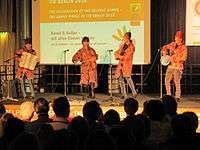 Music ethnic group «Beles». Traditional melodies (Kazakhstan) |
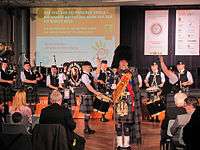 Ensemble «Rhine Power Pipe Band» (Germany). Scottish music |
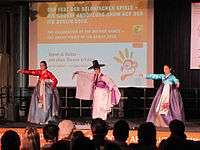 Music group «Sound of Korea». Folk songs and dances (South Korea) | ||
In addition to the celebration of the Delphic Games for the ITB Berlin in 2011, an international contest for short documentaries - the Delphic Art Movie Award 2011 - is scheduled. This was initiated by the International Delphic Council.[41][42][43]
Format of the modern Delphic Games
Delphic arts and culture categories
The International Delphic Council (IDC) and the hosting nations National Delphic Council (NDC) meet together and choose the disciplines out if the Delphic arts categories as presentation programme for the Games.
- Acoustic Arts (i.e. Singing, instrumental, electronic sounds ...)
- Performing Arts (i.e. Dance, theater, circus ...)
- Lingual Arts (i.e. Literature, lectures, moderation ...)
- Visual Arts (i.e. Painting/graphics, sculpture/installation, photography/film, architecture, design, fashion, handicraft ...)
- Social Arts (i.e. Communication, internet, media, pedagogic, didactic ...)
- Ecological Arts (i.e. Landscape and city planning, preservation and conservation of nature, buildings, memorials and monuments ...)
Jury
The competitors presents and demonstrate their work traditionally or modern arts to make the programme attractive. The independent experts served as Judges to decide for professional work and take decision for the best price award. The Judges are specialist like art teachers, professional artist and prominent persons.
Prizes and awards
The most important elements of the Games are artistic competitions the presentations and exhibitions. Exceptional artists will be honoured with special awards of the International Delphic Games such as:
Delphic Medals Award - gold, silver and bronze for comparable Delphic art categories.
Delphic Lyre Award - exceptional artistic individual performance as a part of a larger synthesis of the arts
Delphic Laurel Award - for outstanding and incomparable artistic performances
Delphic Certificate - for all active participants of the Delphic Junior Games and of the Delphic Games for adults
IDC and NDC Russia
From the beginning Russia played an active role in the formation of the International Delphic Movement.[44] After 2003, many Russian websites and central mass media claimed that Russia alone has revived the Delphic idea in 2000.[45] Despite the withdrawal of the National Delphic Council from the International Delphic Council, the Russian delegations took part in the International Delphic Games in 2007 and 2009.[46][47] The illustrated Delphic calendars verify these participations.[26]
Videos
- Die Delphischen Spiele 1994 - 2007
- Die ersten Delphischen Jugendspiele 1997, Tiflis / Georgien
- Die ersten Delphischen Spiele 2000, Moskau / Russland
- Die zweiten Delphischen Jugendspiele 2003, Düsseldorf / Deutschland
- Die zweiten Delphischen Spiele 2005, Kuching / Malaysia
- Die dritten Delphischen Jugendspiele 2007, Baguio City / Philippinen
- Die dritten Delphischen Spiele 2009, Jeju-si / Süd Korea
References
- ↑ The International Delphic Council (IDC)
- ↑ Pythian Games, Encyclopædia Britannica
- ↑ Information about the Festivals of Delphi Greece
- 1 2 Ralf Schuler. Pythia von Pankow. J.C.B.Kirsch will die Delphische Spiele. «Die Welt», Nr.156, 6./7. Juli 1996
- ↑ Founding Members
- ↑ Delphische Spiele als Reflexion ihrer Zeit. «Athener Zeitung», Nr. 55, 16. Dezember 1994
- ↑ The second coming of Delphic Games. «Daily Times», Nr. 20, January 27, 1995
- ↑ Von Cornelia Krüger. Traum von einer Olympiade der Kunst. «Mitteldeutsche Zeitung», Nr.186, 11. August 1995
- ↑ Von Carmen Böker. Olympiade für Schöngeister. «Berliner Zeitung», Nr. 226, 27. September 1995
- ↑ Svetlana Leontieva. The New Delphic Games. «Neva News», January 1996
- ↑ Von Ralf Schuler. Pythia von Pankow. «Die Welt», Nr.156, 6./7. Juli 1996
- 1 2 IDC Executive Board / Spiritual unification of Delphi and Jeju
- ↑ Membership_approval. 24. März 1999
- ↑ Official letters of the NDC Russia, 01. November 1999
- ↑ Артемий Понявин. Вместе лучше… //«Трибуна», № 192, 12 октября 2000 года]
- ↑ Игорь Побережский. Идея. Москва Дельфийская. //«Новая Берлинская Газета», Берлин, № 15, 13 — 19 декабря 1996 года
- ↑ Logo, Delphischer Rat Deutschland
- ↑ Logo - Delphic Games Russia 1999
- ↑ Logo - Delphic Games Russia 2001
- ↑ Greeting from Yehudi Menuhin 1997
- ↑ Greeting from Elena Obraztsova 2009
- ↑ The official letter. 26. Juni 2000
- ↑ Дельфийскому совету России исполнилось 10 лет
- ↑ Марина Чернявская. Дельфийские игры современности //«Педагогика искусства»: электронный научный журнал. — Москва, № 2 2008
- ↑ Марина Чернявская. Дельфийские игры — вчера, сегодня, завтра //«Педагогика искусства»: электронный научный журнал. — Москва, № 4 2009
- 1 2 Delphic calendar 2009. Delphic Greetings from Baguio City to Jeju
- 1 2 Delphic calendar 2010. Delphic Games in Jeju. Impressions in drawings
- ↑ UNESCO letter 1997
- ↑ Council of Europe letter 1997
- ↑ Parliament of Georgia letter 1997
- ↑ Council of Europe letter 2000
- ↑ Council of Europe letter 2003
- ↑ UNESCO letter 2005
- ↑ President Republic of Philippines 2007
- ↑ Lee Kyung-min. Top Artists to Gather at 3rd Jeju Delphic Games September 7th, 2009
- ↑ By Chung Ah-young. 3rd Delphic Games Opens on Jeju Island «The Korea Times», 09-09-2009
- ↑ Water ceremony and Delphic Games 2009
- ↑ The IDC at the ITB Berlin. The Feast of Delphic Games - March 14th 2010
- ↑ Document UNESCO-2010, INTERGOVERNMENTAL ORGANIZATIONS (IGO), page 19 - International Delphic Council
- ↑ Oliver Heilwagen. Delphi goes Dancefloor 22.03.2010
- ↑ Delphic Art Movie Award 2011
- ↑ Aufruf zum Wettbewerb
- ↑ Hosted by the International Delphic Council
- ↑ L. Wartazarowa.. Delphic Movement - bet on the youth // Greek.ru. — 21 мая 2003
- ↑ Oleg Dzüba.. Oblivion and the revival of traditions. // «Парламентская газета» — 24 апреля 2008
- ↑ Маrina Chernyavskaya. Delphic Games of the modern era //«Педагогика искусства» Москва, № 2 2008
- ↑ Маrina Chernyavskaya. Delphic Games - yesterday, today and tomorrow //«Педагогика искусства» Москва, № 4 2009
External links
| Wikimedia Commons has media related to International Delphic Council. |
- International Delphic Council
- Delphic-Media
- 20.November 2000: Delphische Spiele in Moskau
- 7 September 2004: National Delphic Council: Department briefing
- February 13, 2006 Jeju bids for international culture Olympics
- 20.09.2007: Deutsche Tänzer, Komponisten und Breaker reisen im November zu den III. Junior Delphic Games 2007 in die Philippinen
- Education through Art by Delphic Games of the Modern Era
- 28.August 2008: Jan Oliver Scheller. Einladung zur Eröffnung der Ausstellung «Art from Pyongyang Korea»
- Sept. 2 -10. 2008 Art from Pyongyang Korea
- 04-21-2009: By Chung Ah-young. Delphic Games to Be Held in Jeju
- Delphiade der Künste
- 19.5.2009: «Delphiade der Künste» thematisiert Grundgesetz und deutsche Einheit
- http://internationallife.org/charity.html
- Greeting from Elena Obraztsova, Saint Petersburg, 2009
- September,04,2009: Delphic Games honor peace through art
- September 7th, 2009: Lee Kyung-min. Top Artists to Gather at 3rd Jeju Delphic Games
- 2009-09-09: Delphic Games Open in Jeju
- 09-09-2009: By Chung Ah-young. 3rd Delphic Games Opens on Jeju Island
- Sep. 10 2009: Competition kicks off at 'culture Olympics' on S. Korean island
- 01/10/2009 SA: Mashatile: Speech by the Deputy Minister of Arts and Culture, on the occasion of the Republic of Korea National Day Celebrations
International press
- 1988 год, К. И. Якубович. Небывало! Невиданно! Здорово! * IDC * International * Delphic * Committee * проект века. //«Российская Музыкальная Газета» ежемесячное издание Союза композиторов РСФСР,№ 9.
- 24 января 1989, Е. Бовкун. Господин Кирш ждет ответа. //«Известия», Москва, № 25 (22563),
- 1. März 1991, Franz Anton. Ein Jahr der Delphischen Spiele. «Sachsen Spiegel», Nr.9.
- 3. Mai 1993, Griechenland braucht die Delphischen Spiele. «Athener Zeitung», Nr. 18.
- 16. Dezember 1994, Delphische Spiele als Reflexion ihrer Zeit. «Athener Zeitung», Nr. 55.
- 08 августа 1995, Владимир Кузнецов. Возрождение Дельфийских игр. //«Санкт-Петербургские Ведомости», Санкт-Петербург, № 148 (1076).
- January 27, 1995, The second coming of Delphic Games. «Daily Times», Nr. 20.
- 08 августа 1995, Владимир Кузнецов. Возрождение Дельфийских игр. //«Санкт-Петербургские Ведомости», Санкт-Петербург, № 148 (1076).
- 11. August 1995, Von Cornelia Krüger. Traum von einer Olympiade der Kunst. «Mitteldeutsche Zeitung», Nr.186.
- 10–17 January 1995, Oyagbola heads Delphic Games, Lagos Horizon
- 21.01.1995, Nigeria to host Delphic culture games, Saturday champion
- Jan./Febr.2000, Engagement für Delphische Spiele, Diplomatisches Magazin
- Juni 2001, International Delphic Council, Diplomatisches Magazin
- 10.02.2003, Spreading The Canvas: Here Comes Indian Culture, HT City
- 30.August 2003, «Neue Impulse an die Gesellschaft geben». Verleihung des Innovationspreises auf der Museuminsel Hombroich: Drei Preisträger bewegen mit ihren Erfindungen die Menschen. Die Träger des Innovationspreises 2003: Richard Breuer, Professor Fritz Popp, Christian Kirsch und Moderator Hans Georg Torkel. «Neuss- Grevenbroicher Zeitung», Nr.201.
- 16.06.2005, Kuching to host arts olympics, The Star
- 21.06.2005, Extending Invitation, Sarawak Tribune
- 03.09.2005, International Delphic Games 2005 launched, Sarawak Tribune
- 05.09.2005, Deputy Governor wants 4th Delphic Games in S. Korea, The Borneo Post
- 09.09.2005, We will help but be transparent, says government, The Borneo Post
- 26.09.2005, Koreans made great effort at the Delphic Games, Outlook (Sarawak Tribune)
